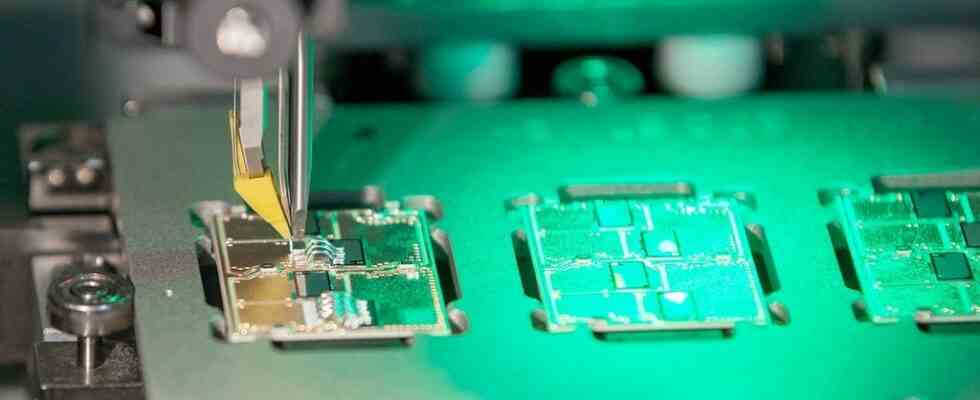Status: 02/20/2023 10:18 a.m
They should bring jobs and economic growth: chip factories in East Germany. Criticism now comes from the Leibniz Institute for Economic Research. Millions in subsidies would be poured into outdated technology.
The Leibniz Institute for Economic Research Halle (IWH) criticizes the billions in subsidies for chip factories in East Germany. “We throw the money out the window,” said IWH President Reint Gropp, who has been in office since 2014, of the “Süddeutsche Zeitung” in an interview that was distributed on Sunday. “We should better put the money somewhere else.”
“International Subsidy Race”
Promoting works that produced with old technology – that could not be the right way. “I am very critical of this international subsidy race,” said Gropp. “The public funding for the new Infineon factory in Dresden will amount to one million euros per job – that’s too much.”
The economist and government adviser said: “Why should one still give money to such profitable companies? No gifts may be distributed.” In addition, it is not clear whether there will be major bottlenecks in semiconductors again in the future. “It is unacceptable that public funds are now being used to build capacities that we may not even need.”
Several billion euros in funding
In March 2022, Intel announced that the latest generation of chips would be produced in Magdeburg from 2027. The investment is expected to cost 17 billion euros. The federal government recently said that Intel is now demanding ten billion euros for the planned settlement instead of the promised 6.8 billion euros.
The chip company Infineon wants to start building a new plant in Dresden this fall. Around 1000 jobs are to be created. Infineon is aiming for funding of around one billion euros. The total investment is said to be around five billion euros.
Better money for research and development
Gropp said Intel is building a large plant, but no important decisions will be made there or significant research and development activities will be located there. “This has already been shown in the large investments made by BMW and Porsche in plants in Saxony,” criticized the economist. “We should better promote future technologies.” The German economy needs innovations if it wants to survive.
According to Gropp, a good starting point would be to promote research and development – at universities, research institutes and colleges, but also in companies. Start-up financing for large projects is also important, he said: “You can spend a lot of money there, and in the long term these are better investments.”

